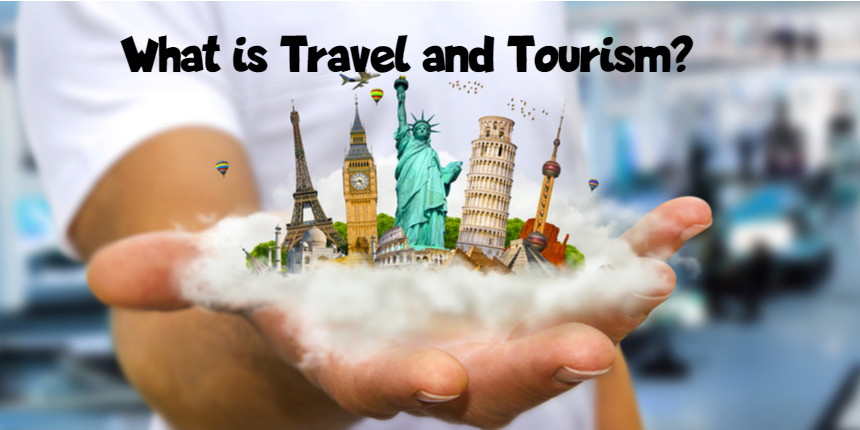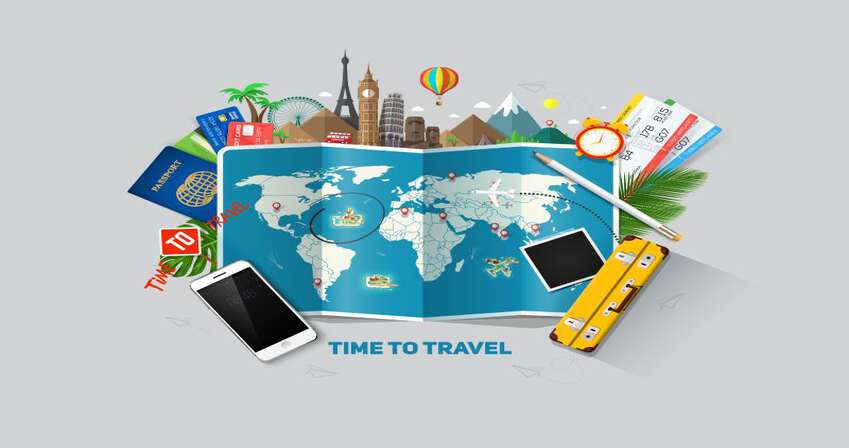Difference Between Travel and Tourism: Exploring Unique Aspects of Each

Table of Contents
- Introduction
- Defining Travel and Tourism
- Purpose and Motivation
- Scope and Scale
- Planning and Preparation
- Experiences and Activities
- Impact on Economy
- Cultural Exchange and Education
- Infrastructure and Services
- Environmental Considerations
- Accessibility and Inclusivity
- Relationship with Local Communities
- Challenges and Risks
- Future Trends and Innovations
- Conclusion
- FAQs
Introduction
Travel and tourism are two closely related yet distinct concepts that play a significant role in the global economy and personal experiences. While often used interchangeably, understanding the differences between travel and tourism helps us grasp the unique aspects and impacts of each. This article aims to explore the disparities between travel and tourism, highlighting their diverse characteristics and contributions.
Defining Travel and Tourism
Travel refers to the act of moving from one place to another, typically for recreational, educational, or personal purposes. It encompasses the journey itself, involving transportation, exploration, and discovery. On the other hand, tourism refers to the broader industry that encompasses various activities, services, and facilities related to travel. Tourism involves the provision of accommodation, attractions, entertainment, and support services for travelers. Book Your Tickets or Hotels
Purpose and Motivation
The purpose of travel is often driven by personal desires for adventure, relaxation, learning, or cultural immersion. Travelers seek new experiences, a break from routine, and an opportunity to broaden their horizons. Tourism, on the other hand, has a broader purpose. It aims to promote destinations, generate revenue, and create employment opportunities by attracting tourists and providing them with memorable experiences.
Scope and Scale
Travel can be an individual or group activity, ranging from short domestic trips to extensive international journeys. It can be spontaneous or meticulously planned, catering to various budgets and preferences. Tourism, in contrast, operates on a larger scale. It involves the management of destinations, marketing strategies, and infrastructure development to attract and accommodate a significant number of visitors.
Planning and Preparation
While some travel experiences may require minimal planning, others demand careful preparation. Travelers consider factors such as transportation, accommodation, budget, itinerary, and safety measures. Tourism involves comprehensive planning at a destination level, including the development of attractions, accommodation options, transportation networks, and promotional campaigns to ensure a seamless experience for visitors.
Experiences and Activities
Travel offers a wide range of experiences and activities tailored to individual preferences. It can include adventure sports, cultural immersions, culinary explorations, nature retreats, historical sightseeing, or simply leisurely escapes. Tourism enhances these experiences by providing a curated selection of attractions, guided tours, entertainment, and recreational facilities that cater to diverse interests and preferences.
Impact on Economy
Travel and tourism both have substantial economic implications. Travel contributes to the local economy by generating revenue for transportation providers, accommodation providers, restaurants, and other service providers along the travel route. Tourism, as an industry, has a more profound impact on the overall economy. It creates jobs, stimulates infrastructure development, and generates revenue through visitor expenditures, taxes, and foreign exchange earnings.

Cultural Exchange and Education
Travel and tourism foster cultural exchange and education. Through travel, individuals have the opportunity to interact with diverse cultures, traditions, and languages, promoting tolerance and understanding. Tourism destinations often offer educational experiences through museums, cultural events, and heritage sites, providing visitors with insights into local customs, history, and art.
Infrastructure and Services
Travel relies on the availability of transportation systems, accommodation options, and support services such as travel agencies, insurance providers, and communication networks. Tourism necessitates the development and maintenance of infrastructure to accommodate large volumes of visitors. This includes airports, hotels, restaurants, public transportation, and other facilities to ensure a comfortable and enjoyable stay for tourists.
Environmental Considerations
Travel and tourism have varying impacts on the environment. Travel, particularly long-distance air travel, contributes to carbon emissions and ecological footprints. Sustainable travel practices, such as choosing eco-friendly transportation options and minimizing waste, can help mitigate these impacts. Tourism destinations must also prioritize environmental sustainability by implementing conservation measures, promoting responsible tourism practices, and preserving natural resources.
Accessibility and Inclusivity
Travel and tourism face challenges related to accessibility and inclusivity. While travel can be hindered by factors such as financial constraints or physical limitations, efforts are being made to ensure equal access to travel experiences. The tourism industry strives for inclusivity by providing accessible infrastructure, accommodating diverse needs, and promoting inclusive tourism practices to cater to a wide range of travelers.
Relationship with Local Communities
Travel and tourism interact closely with local communities. Travelers have the opportunity to engage with locals, contributing to cultural exchange, economic support, and community development. Tourism can bring economic benefits to local communities through job creation, income generation, and the preservation of cultural heritage. However, it also presents challenges such as overtourism, cultural appropriation, and unequal distribution of economic benefits, which need to be addressed for sustainable community development.

Challenges and Risks
Travel and tourism face various challenges and risks. These include natural disasters, political instability, health emergencies, security concerns, and economic fluctuations. Adapting to changing circumstances and managing risks is crucial for both travelers and the tourism industry. Implementing robust safety protocols, crisis management strategies, and effective communication systems helps mitigate potential risks and ensure the well-being of travelers and tourism stakeholders.
Future Trends and Innovations
The travel and tourism industry is continuously evolving, driven by technological advancements and changing consumer preferences. Future trends may include virtual reality travel experiences, sustainable tourism practices, personalized travel recommendations using artificial intelligence, and the integration of digital platforms for seamless travel arrangements. Innovations in transportation, accommodation, and entertainment aim to enhance the overall travel and tourism experiences.
Conclusion
In conclusion, while travel and tourism share the common thread of exploration and experiences, they differ in scope, purpose, scale, and impact. Travel encompasses the act of moving from one place to another, driven by personal motivations, while tourism involves a broader industry that caters to travelers’ needs and contributes significantly to the economy. Recognizing the distinctions between travel and tourism enables us to appreciate their unique contributions and better understand their implications for individuals and destinations.
Travel is Exciting and Travel Insurance is very important
FAQs
- Q: Is travel the same as tourism? A: While travel and tourism are related, they have distinct characteristics. Travel refers to the act of moving from one place to another, while tourism encompasses the industry and services that support travel experiences.
- Q: What is the economic impact of tourism? A: Tourism has a significant economic impact as it generates revenue, creates jobs, and stimulates infrastructure development in destinations.
- Q: How can travel contribute to cultural exchange? A: Through travel, individuals have the opportunity to interact with diverse cultures, traditions, and languages, fostering cultural exchange and promoting understanding.
- Q: What are some challenges faced by the tourism industry? A: The tourism industry faces challenges such as natural disasters, political instability, health emergencies, security concerns, and economic fluctuations.
- Q: What are the future trends in travel and tourism? A: Future trends may include virtual reality travel experiences, sustainable tourism practices, personalized travel recommendations using artificial intelligence, and seamless digital platforms for travel arrangements.
